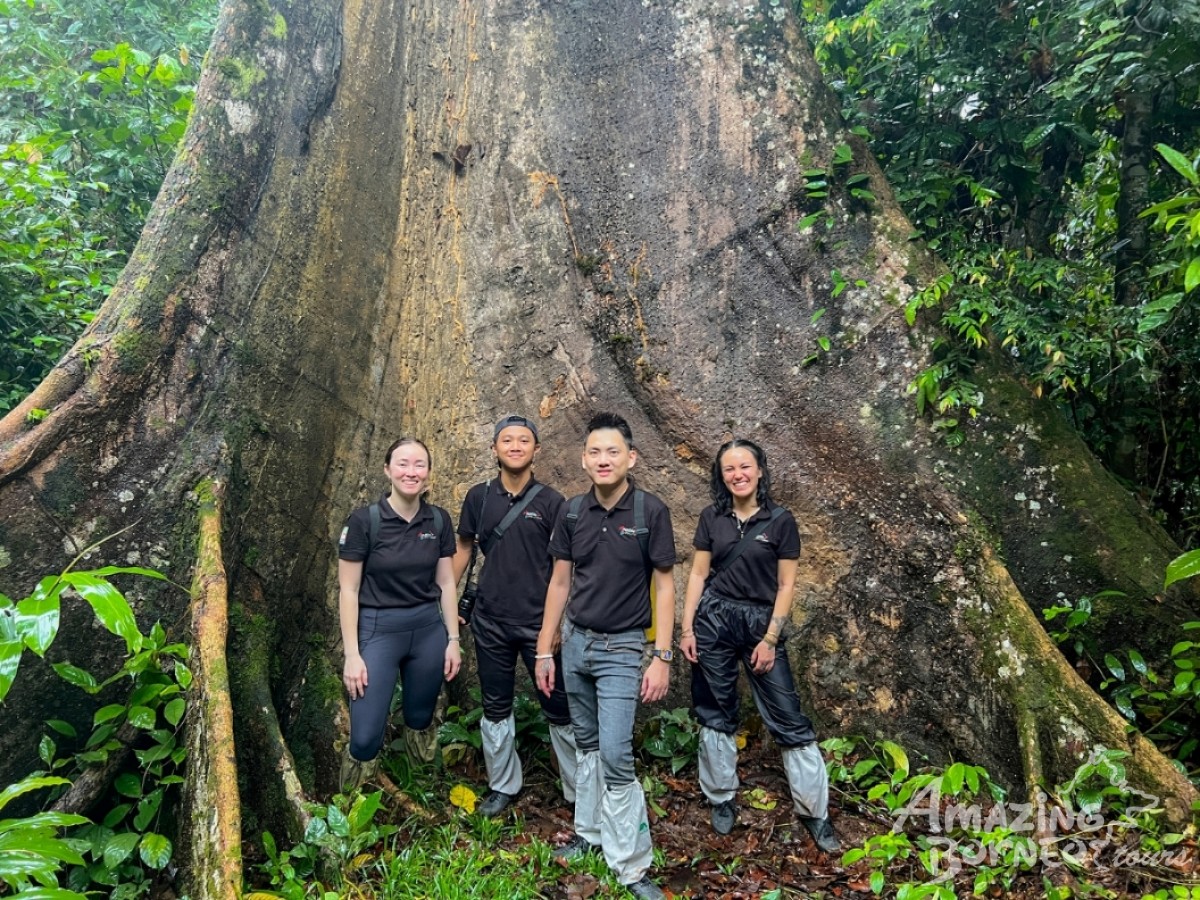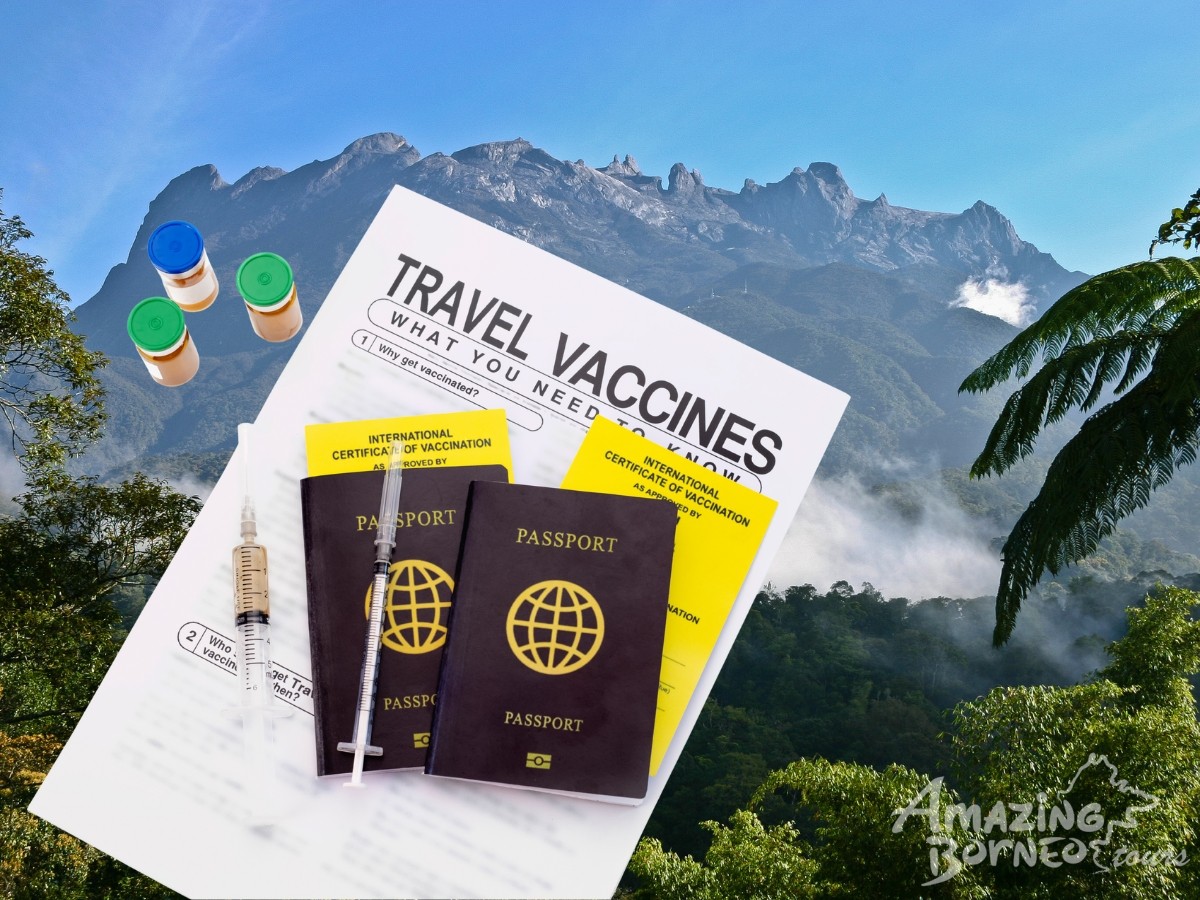Travelling to Borneo, with its lush rainforests, vibrant culture, and diverse wildlife, is an exciting adventure for any traveller. However, before you embark on this tropical journey, it’s crucial to ensure that your health and safety are a priority. One of the best ways to do this is by getting the necessary vaccinations to protect yourself from diseases that are more prevalent in tropical regions like Borneo.
In this comprehensive guide, we’ll cover the essential vaccinations recommended for those planning to visit Borneo. Whether you're trekking through the rainforests, exploring cultural villages, or relaxing on pristine beaches, being vaccinated can help ensure a smooth and healthy trip.
- Why are vaccinations important for Borneo?
- Essential vaccines for Borneo
- Other health considerations
- When to get vaccinated
Why Are Vaccinations Important for Borneo?

Borneo’s tropical climate and unique environment make it an ideal destination for nature lovers and adventurers alike. However, the same climate also creates certain health risks, as the region is home to diseases that are transmitted by mosquitoes, contaminated water, and food.
While Borneo's urban areas, such as Kota Kinabalu, are well-developed, the rural and more remote areas of the island might have limited access to modern healthcare and sanitation services. As a result, vaccinations are essential for preventing diseases that may be more prevalent in the countryside or forested areas.
By getting vaccinated before your trip, you are not only protecting yourself but also helping to safeguard local communities, ensuring that you can fully enjoy all that Borneo has to offer.
Essential Vaccines for Borneo
Hepatitis A
- What it is: Hepatitis A is a viral infection of the liver, often transmitted through contaminated food or water.
- Why it’s recommended: Hepatitis A is prevalent in areas where sanitation practices may not meet international standards. Borneo's rural areas, especially those with limited water purification infrastructure, pose a higher risk for travellers.
- Recommended for: All travellers, particularly those staying in remote or rural locations, where the risk of food and waterborne diseases is higher.
- Where to get it: Hepatitis A vaccinations are widely available at travel clinics and healthcare providers. It’s typically administered in two doses.
Hepatitis B
- What it is: Hepatitis B is a viral infection that affects the liver and is spread through bodily fluids.
- Why it’s recommended: While the disease isn’t widespread, Hepatitis B is a risk for travellers who may require medical treatment or have prolonged stays.
- Recommended for: Travellers planning an extended stay or those at risk due to medical procedures or other high-risk activities.
- Where to get it: Hepatitis B vaccines are available at travel health clinics and typically require a three-dose series.
Typhoid Fever
- What it is: Typhoid fever is caused by a bacterial infection transmitted through contaminated food or water.
- Why it’s recommended: In rural and less developed regions of Borneo, food and water contamination is a concern. Typhoid fever is preventable with vaccination and proper sanitation practices.
- Recommended for: Those travelling to rural or less-developed areas, especially those who plan to eat local street food or stay in remote villages.
- Where to get it: The typhoid vaccine is available at most travel clinics and can be administered as a single shot or oral dose.
Malaria
- What it is: Malaria is a mosquito-borne disease caused by parasites that infect the blood.
- Why it’s recommended: While malaria is not found in urban areas like Kota Kinabalu, it’s common in rural areas, particularly in forested or jungle regions. Mosquitoes in these areas may carry malaria.
- Recommended for: Travellers visiting rural or jungle areas where malaria-carrying mosquitoes are more prevalent.
- Where to get it: There is no vaccine for malaria, but anti-malarial medications can be prescribed by a healthcare provider. In addition, using insect repellent and sleeping under mosquito nets are highly recommended.
Japanese Encephalitis
- What it is: Japanese Encephalitis is a viral infection spread by mosquitoes, often leading to inflammation of the brain.
- Why it’s recommended: This disease is more common in rural agricultural areas, particularly those with rice paddies or pig farms. Travellers spending time in these areas are at risk of contracting the disease.
- Recommended for: Travellers visiting rural or agricultural areas, particularly in Sabah, where rice fields and animal farms are more common.
- Where to get it: The vaccine is available at travel clinics and is typically given as a two-dose series.
Dengue Fever
- What it is: Dengue fever is a mosquito-borne viral infection, common in tropical regions.
- Why it’s recommended: Although there is no vaccine for Dengue, it’s important to take preventative measures. Dengue is found in both urban and rural areas, especially during the rainy season when mosquito populations are higher.
- Recommended for: All travellers, particularly those spending time outdoors in areas with higher mosquito populations.
- Where to get it: Preventative measures like wearing long sleeves, using insect repellent, and staying in air-conditioned accommodation are key. No vaccine is currently available.
Rabies
- What it is: Rabies is a deadly viral disease transmitted by the bite or scratch of an infected animal.
- Why it’s recommended: Although rabies is rare in Borneo, visitors engaging in outdoor activities like trekking or wildlife encounters may be at risk. It's important to be cautious around animals and consider vaccination if engaging with wildlife.
- Recommended for: Those who plan to visit rural areas, interact with animals, or participate in wildlife-related activities.
- Where to get it: The rabies vaccine is available through travel health clinics, typically administered in a series of three doses.
Tetanus
- What it is: Tetanus is a bacterial infection that can cause muscle stiffness and spasms, often contracted through cuts or wounds.
- Why it’s recommended: Travellers involved in outdoor activities such as hiking, cycling, or trekking in rural areas may be at risk of injury.
- Recommended for: Adventurous travellers, particularly those participating in outdoor activities like trekking or cycling in rural areas.
- Where to get it: Tetanus vaccines are available at most healthcare clinics and are often administered as part of routine vaccinations.
Other Health Considerations

In addition to vaccinations, here are a few more health considerations for your trip to Borneo:
- Travel Insurance: Make sure your travel insurance covers health-related issues, including vaccinations and emergency medical care.
- Insect Protection: Always carry insect repellent, wear long-sleeved clothing, and sleep under mosquito nets to protect yourself from mosquito-borne diseases.
- Safe Food and Water: Stick to bottled or filtered water and avoid eating raw or undercooked food to prevent waterborne illnesses like typhoid and cholera.
When to Get Vaccinated
Vaccinations should be planned well in advance, ideally 4-6 weeks before your trip. This allows enough time for your body to develop immunity. If you need multiple doses of a vaccine, such as the Hepatitis B vaccine, this timeline becomes even more important.
For optimal health protection, it’s always best to consult with a healthcare provider who can tailor vaccination advice based on your travel itinerary and specific needs.
Conclusion
By taking the necessary health precautions and getting the recommended vaccinations, you can ensure that your trip to Borneo is safe and enjoyable. Make sure to consult with your healthcare provider well in advance of your trip to stay protected from preventable diseases.
Stay safe, and enjoy the natural beauty, culture, and adventure that Borneo has to offer!

